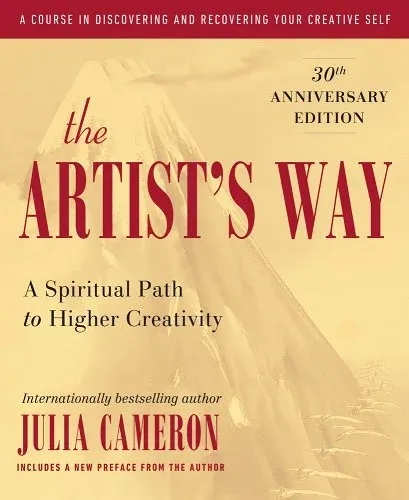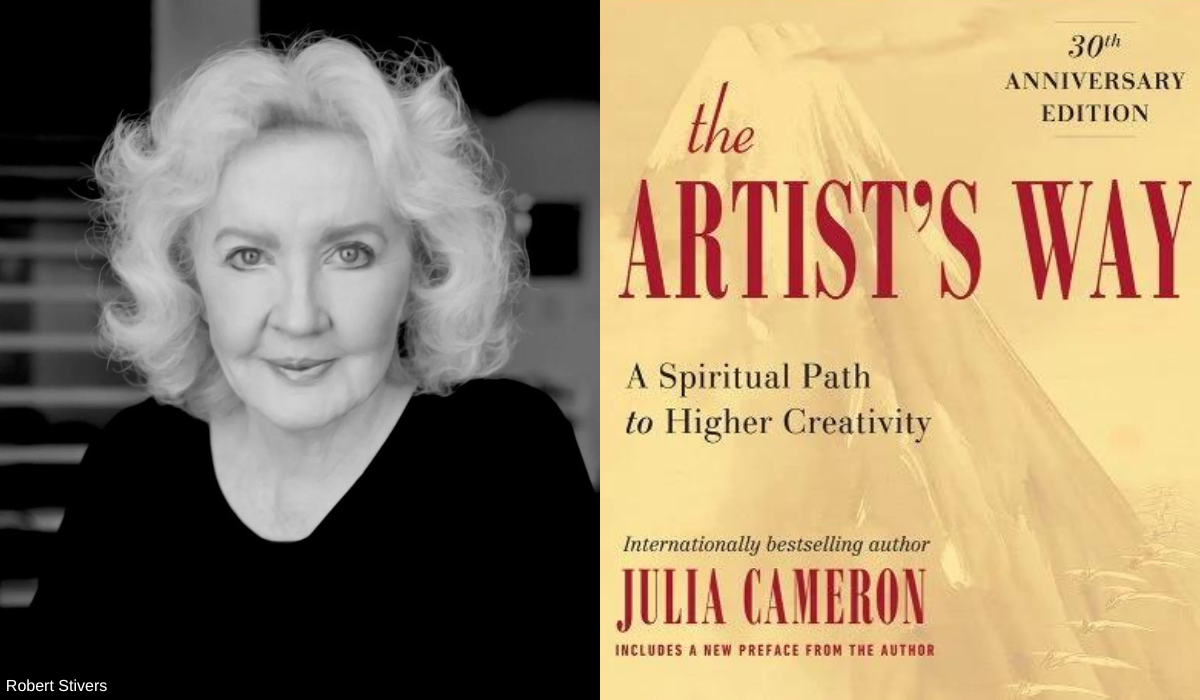With More Than 5 Million Copies Sold, The Artist’s Way Continues to Change Lives. Author Julia Cameron Tells Us Why
Julia Cameron has unequivocally changed how we view creativity. With the publication of The Artist's Way: A Spiritual Path to Higher Creativity in 1992, Cameron argues a democratic take on being artistic. She says every one of us has an "inner artist," and honoring it is how we save ourselves. The author anchors her book, which has sold more than 5 million copies, with two core exercises: "morning pages," a task to handwrite three pages of any thoughts every morning, and the "artist's date," a weekly commitment to spend alone time in a place of inspiration.
In the 30 years since its publication, famous artists have paid homage to The Artist's Way. Elizabeth Gilbert admitted Eat, Pray, Love—her global bestseller—wouldn't exist without it. The book has helped countless—literally countless—people (including this writer) unlock suffocated passions.
But what is most potent about The Artist's Way is the woman behind it. Cameron writes about her struggles, which include alcoholism and being a blocked screenwriter and journalist (her vocations that preceded her writing The Artist's Way and subsequent books) with such honesty that reading it makes you feel safe to acknowledge your pain—and your possibilities. "Whatever you think you can do or believe you can do, begin it," she writes. "Action has magic, grace, and power in it."
I recently called Cameron to talk about tapping into our creativity. She spoke from her home in Santa Fe, off the heels of last year's thirtieth anniversary of The Artist's Way and on the cusp of the forthcoming republishing of her memoir. As we chatted, I realized that doing this work extends beyond ourselves. "When we do morning pages," Cameron tells me, "we become aware of our potential, we become aware of our gifts, and we become aware of our desire to connect."
A CONVERSATION WITH JULIA CAMERON
Julia, you believe there's an artist within all of us. If we don't nurture our "inner artist," what do we miss out on?
We lose out on a sense of zest, a sense of fulfillment, and a sense of spontaneity. If we don't fulfill our creativity, we find ourselves feeling flat.
In your 30th anniversary edition of The Artist's Way, you write, "What begins as a risk soon becomes a risk taken." What do you say to the person who feels taking a creative risk is too much, given how overwhelming life can be?
You must try. What happens with people is that they come up with many excuses for not taking a risk. If you're worried about taking a risk, try it anyway. The morning pages train us to take risks a day at a time. They train us to expand.
You wrote an entire book about embracing creativity midlife and after. Do you still believe it's never too late?
I believe this to be true. We have what I would call a youth culture that trains us to think that we're over the hill after we're over 30. A lot of times, you may be telling yourself it's too late for me. If I haven't done it by now, I won't do it.
I believe that we all have dreams. Some of them are buried, and it takes morning pages to excavate the dreams and bring them to the surface again. When we do that, we find ourselves.
You say that the tools in The Artist's Way are lifesavers. Will you talk about that?
When people come to my work, they're typically frustrated and feel like they've hit a dead end. They come to the creativity tools with a sense of hope and a sense of skepticism. They think I'm not sure these tools will work for me. But when we undertake the tools, we begin to rescue ourselves. I think that rescuing ourselves is the beginning of a lifesaving process.
When we nurture our inner artists, we become attractive to humanity. We have a feeling of greater authenticity. We become clearer. We become better able to connect with others. And when we're better able to connect with others, we have a sense of hope and optimism.
It's common to think that creativity is something only proclaimed artists have. But you say all of us have it and must nurture it no matter what we do. Why?
We all have what I would call a divine spark. It's an outreaching, outgoing, optimistic part of ourselves that has often been tamped down by our lives. We have parents who tell us, 'Darling, don't you think you need something to fall back on?' It's important to realize that the something we have to fall back on is, in fact, ourselves.
Are you still, do you still do your morning pages?
I do. I still do them because they still work. And I've been doing them for 30-plus years.
Has anything changed?
I wouldn't say that things have changed so much as I would say I have woken up to change. Creativity is perennial. The same tools that worked 30 years ago work now. I've been teaching probably for 40 years. We have a proliferation of information coming towards us now, which we need to consciously filter. So it comes down to making choice points: I'm getting up this morning, and I'm going to do my morning pages first rather than check my emails. It's important to commit to them. Jungians tell us that we have a 45-minute window from when we first wake up before our defenses are in place. We want to do our morning pages during that 45-minute window when we are vulnerable and authentic.
You talk about self-care in The Artist's Way—eating healthy food, exercising, and getting good sleep. How do you implement all of this into your days?
I have a checklist that I do every day. It includes things like: Did I do my morning pages? Did I eat properly? Did I get enough sleep, or did I get up too early? Did I exercise? Did I reach out to people and make a connection? I make this list, and I give myself a score at the end of the day from one to 10—10 being excellent, one being miserable. I find that I usually hover around eight and a half.
Have you ever had a 10?
I have yet to have a 10, but I've had nines.

Julia Cameron is the bestselling author of more than 40 books, fiction and nonfiction; a poet, songwriter, filmmaker and playwright. Commonly referred to as "The Godmother" or "High Priestess" of creativity, her tools are based in practice, not theory, and she considers herself "the floor sample of her own toolkit." The Artist's Way has been translated into forty languages and sold over five million copies to date. You can learn more at juliacameronlive.com.
Question from the Editor: What creative passions are you yearning to tap into? We'd love to know in the comments below.
Please note that we may receive affiliate commissions from the sales of linked products.



